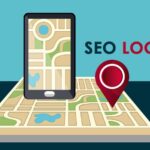
In the ever-evolving digital landscape, local businesses need to stand out in Google top searches to thrive. Local SEO (Search Engine Optimization) ensures your business appears when people search for products or services in their area. Whether you’re a small business owner or looking for a nearby SEO agency, understanding local SEO strategies can dramatically improve visibility and bring in more customers.
What is Local SEO?
Local SEO focuses on optimizing your online presence to attract more business from relevant local searches. These searches often include terms like “my local search,” “coffee shop near me,” or “best SEO services.”
For example, when someone searches for “local services”, businesses optimized for local SEO will appear in the search results, maps, and Google’s Local Pack. Thus, Local SEO is crucial for brick-and-mortar businesses and service providers, as it connects them with potential customers in their area.
Why Local SEO Matters for Google Top Searches
Getting your business listed in “Google top searches” builds visibility, trust, and authority. This leads to:
- Increased Website Traffic: Appearing in local search results drives organic traffic.
- Improved Reputation: Local SEO boosts trustworthiness through reviews and citations.
- More Customers: With higher visibility, you attract potential customers who are actively searching for related services.
Best Ways to Boost Your Local SEO
1. Claim and Optimize Your Google Business Profile
One of the most effective ways to boost your local SEO is by optimizing your Google Business Profile (formerly Google My Business).
- Ensure your business name, address, and phone number (NAP) are accurate.
- Add categories related to your services (e.g., “SEO services” or “local services”).
- Upload high-quality images of your business.
- Use relevant keywords like “my local search” in the business description.
2. Focus on Local Keywords
Local keywords are the backbone of local SEO. Conduct keyword research to find what people are searching for in your area. For instance:
- Use tools like Google Keyword Planner to find keywords related to “Google top searches.”
- Incorporate long-tail keywords like “best SEO agency near me” or “affordable local services.”
- Use these keywords naturally in your website content, meta descriptions, and headers.
3. Optimize for Mobile Devices
Most local searches are performed on mobile devices. Make sure your website is mobile-friendly:
- Use responsive design to ensure your site adapts to any screen size.
- Improve page speed for faster loading times.
- Make contact information and calls-to-action easy to find.
4. Encourage Customer Reviews
Positive reviews build trust and play a significant role in local SEO rankings.
- Ask satisfied customers to leave reviews on Google and Yelp.
- Respond to all reviews (positive and negative) to show that you value customer feedback.
- Use review management tools to monitor and analyze reviews effectively.
5. Localize Your Website Content
Create content that resonates with your local audience:
- Write blog posts about local events, news, or industry trends.
- Add location-based keywords like “SEO agency near me” or “local services” to your pages.
- Highlight local customer success stories and testimonials.
6. Build Local Citations and Backlinks
Citations and backlinks from local websites signal to Google that your business is relevant to the area.
- List your business in local directories like Yelp, Yellow Pages, and TripAdvisor.
- Collaborate with other local businesses to gain backlinks.
- Ensure consistency in your NAP details across all platforms.
7. Leverage Social Media for Local Engagement
Social media platforms help connect with local customers and boost your SEO efforts.
- Share location-specific posts on platforms like Facebook and Instagram.
- Use geotags and hashtags related to your area (e.g., #LocalSEO).
- Encourage followers to share and review your business.
8. Optimize for Voice Search
Voice search is growing rapidly, especially for local queries. Optimize your site for voice search:
- Focus on natural language and question-based keywords (e.g., “What’s the best SEO agency near me?”).
- Create an FAQ section on your website addressing common local queries.
9. Monitor and Analyze Your Performance
Tracking your local SEO performance helps identify what’s working and what needs improvement.
- Use tools like Google Analytics, Google Search Console, and SEMrush.
- Monitor rankings for keywords like “Google top searches” and “my local search.”
- Regularly update your strategies to align with algorithm updates.
10. Hire an SEO Agency
If managing local SEO seems overwhelming, hiring an “SEO agency near me” can be a game-changer.
- Agencies provide expert “SEO services” to help your business rank higher.
- Look for agencies with experience in local SEO, transparent reporting, and a proven track record.
Conclusion
Boosting your local SEO is essential for businesses aiming to dominate Google top searches and attract local customers. Hence, by implementing strategies like optimizing your Google Business Profile, focusing on local keywords, and leveraging social media, you can improve your visibility and grow your business. Whether you manage your SEO in-house or hire a local SEO agency, staying updated with the latest trends is key to success






